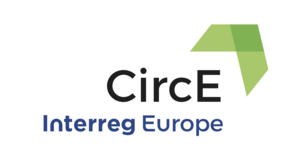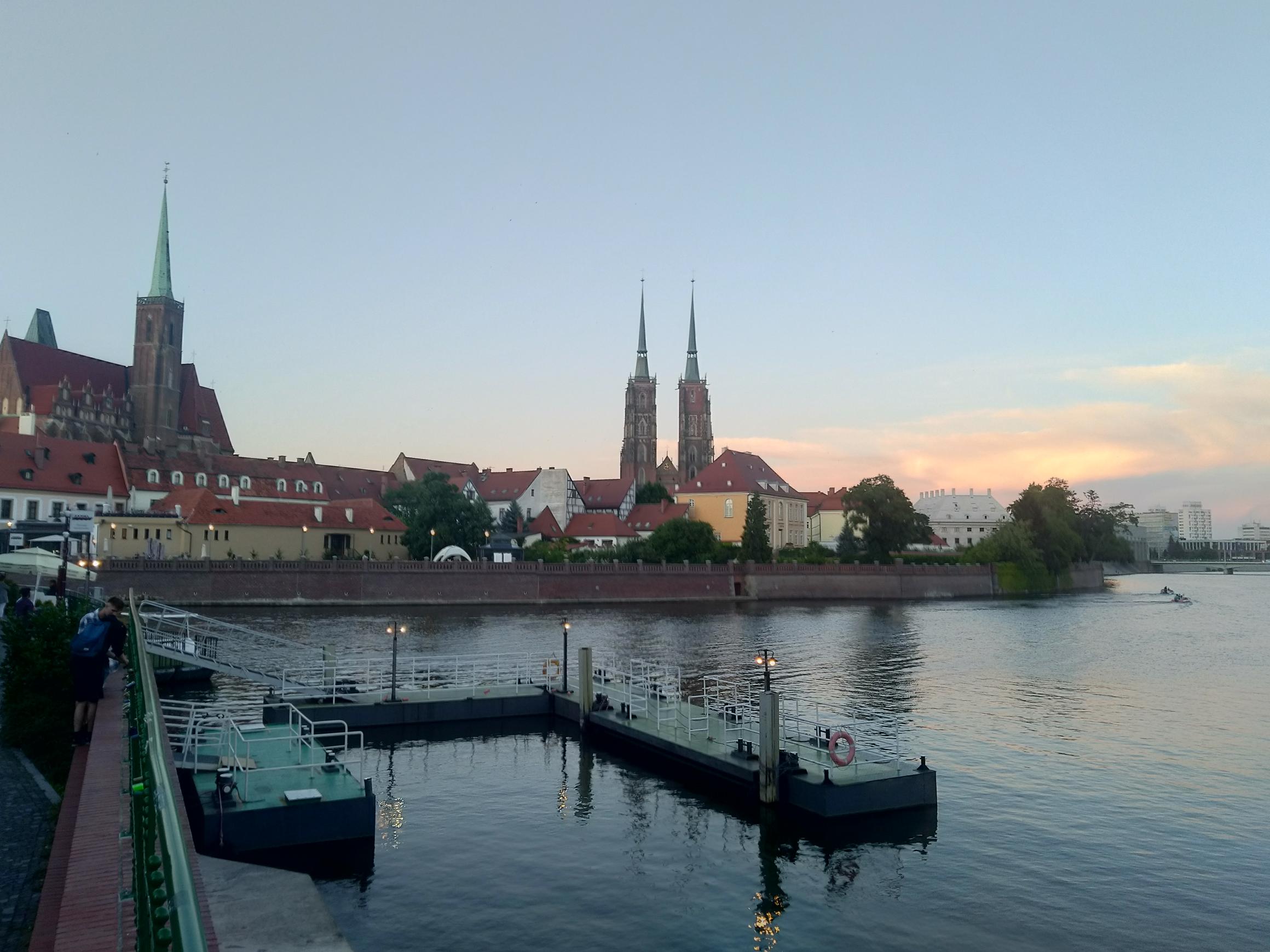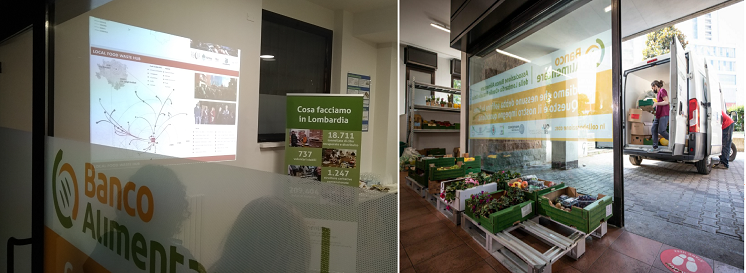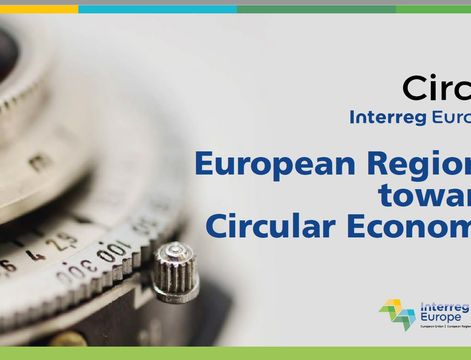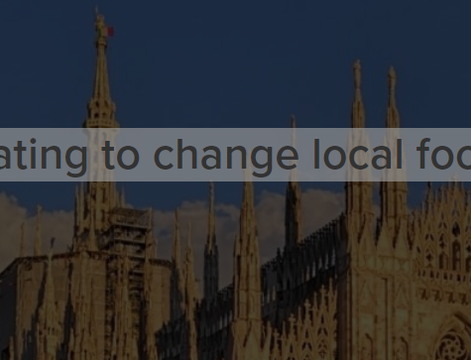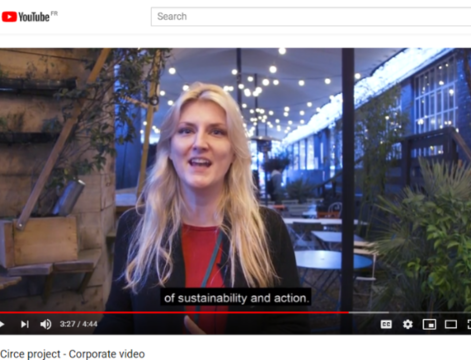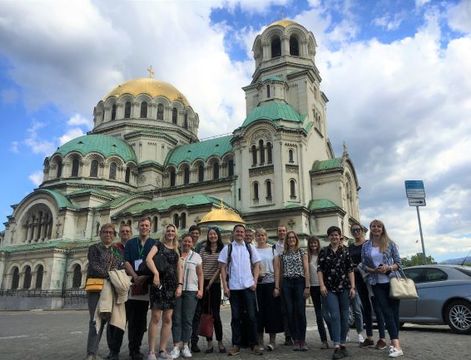The long-awaited announcement came from Prince William, Duke of Cambridge, in connection with the BBC and Discovery Channel: the City of Milan has won the first edition of the international award “Earthshot prize” for the best solutions to protect the environment - that is, with the "hub di quartiere" (neighborhood hubs) food policy project to prevent food waste.
A prestigious achievement, which finds full coherence with the activities underway in the context of the food waste board of the Regional Observatory on the Circular Economy of Regione Lombardia as well as with the INTERREG EU CircE project - responsible for defining support policies of the circular economy - in which the City of Milan and Banco Alimentare take part as stakeholders.
The Prize materializes in a million GBP check (corresponding to 1.17 million €), and in the support from the Royal Foundation of The Duke and Duchess of Cambridge for the next 5 years.
The victory could not be taken for granted, since the international committee of experts of the "Earthshot prize" was called to evaluate 750 initiatives, candidates from all over the world. But it certainly had done well to hope that the Milanese experience had arrived among the 15 finalists.
The proclamation saw the neighborhood hubs triumph in the category “Build a Waste-Free World”, one of the five scheduled categories along with “Protect and Restore Nature”, “Clean our Air”, “Revive our Oceans”, and “Fix our Climate”.
The other 4 winners testify to the global reach of the initiative: Costa Rica for the protection of forests, India for the reduction of smoke emissions into the atmosphere, the City of Berlin for the development of hydrogen technologies for energy production and the Bahamas for the defense of coral reefs.
How neighborhood hubs work
The idea behind the project is as simple as effective. Large spaces are identified and designed for the recovery, through insulated vans, storage - in cold rooms for perishable goods - and final redistribution of food surpluses to organizations involved in the support of destitute families.
Both fresh, dry and packaged food from supermarkets and hot meals recovered from company canteens are collected.
The project was born from an alliance, in 2017, among the City of Milan, the research group of the Food Sustainability Lab (which includes the Food Sustainability Observatory) from the Department of Managerial Engineering of the Politecnico di Milano, Assolombarda, the CaRiPLo and the QuBì Program, promoted by the CaRiPLo Foundation since 2017 to combat child poverty and in particular food poverty.
History, results and further developments
In 2019, the construction of the first hub in the Isola district involved the Banco Alimentare of Lombardy and made it possible to save over 10 tons of food per month, ensuring a flow of 260,000 meals-equivalent in one year, reaching as much as 3,800 people, thanks to the contribution of 20 supermarkets, 4 company canteens and 24 entities of the voluntary sector.
Immediately after the first COVID-19 lockdown in spring 2020, a second hub was launched in Lambrate, also managed by the Banco Alimentare of Lombardy in a space made available by AVIS (the main Italian blood donor association) with the contribution of BCC Milan (Banca di Credito Cooperativo, a private bank). The third hub, in the Gallaratese area, was openend in 2021 and is managed by the Terre des hommes association with the contribution of the Milan Football Club Foundation.
The next hub, still in the planning phase, will be the Corvetto neighborhood hub against food waste, with the management of the Banco Alimentare of Lombardy and the contribution of the SNAM Foundation (SNAM S.p.A. is a major Italian player in gas storage and distribution); while to open a fifth hub, the City of Milan has recently started the co-planning board for the City Center hub with the IBVA Charity Association and, again, with the contribution of BCC Milan.
As it can be seen, it is a project capable - above all - of networking, and of activating a precious synergy among many different players in the area: public bodies, food banks, charities, NGOs, universities and private companies and foundations, with the fundamental contribution of large retailers.
The funds coming from the "Earthshot prize" will therefore be used to increasingly strengthen these hubs, open new ones, guaranteeing their long-term sustainability and replicate this best practice in the network of cities that work with Milan on food policies, starting from the network of the cities of C40 and the Milan Urban Food policy pact.
On the horizon there are further steps in the fight against food waste!
